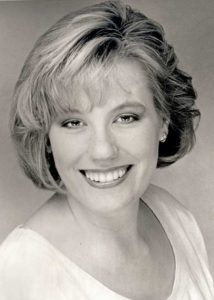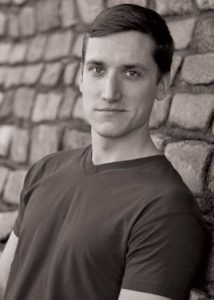Saturday, March 10 at 7:30 pm
Sunday, March 11 at 3:00 pm
Zion Lutheran Church, Sunbury
Get Directions
Pre-concert lecture with Gary Boerckel before each performance.
Ein Deutches Requiem
Johannes Brahms’s [1833-1897] A German Requiem established his reputation in Germany as a master composer in the tradition of Beethoven and J. S. Bach. Some of the music for the second movement may date back to 1854, but the death of Brahms’s mother in February, 1865 seems to have been the impetus for the work’s completion. Though he was only 32 years old in 1865, Brahms already had many years experience as a choral conductor and composer of choral music. The first public performance, which included only the first three movements, was a failure due, at least in part, to an overzealous timpanist who drowned out the rest of the ensemble in the third movement. The official premiere was scheduled for the Breman cathedral on Good Friday, 1868. The chorus was well-prepared and the composer conducted. The acclaim of audience, musicians, and critics was universal and over the next few years Brahms’s Requiem was performed in every major German-speaking city.
Based on Biblical passages chosen by the composer, Ein Deutsches Requiem is not a all a traditional requiem. Brahms himself seems to have been somewhat ambivalent about the title. In a letter to Clara Schumann, he described the first three completed movements as “a kind of German requiem” and, years later, he told a colleague that he might just as well have called it A Human Requiem. The Latin requiem is, in large part, a prayer for the dead, that they may know rest and peace. Brahms texts are concerned with the living more than the dead. The first words sung by the chorus are Blessed are those who mourn and the later movements offer consolation to the living in the face of life’s shortness and sorrow. The dead are blessed, as the final movement proclaims, and at peace. Musically, Ein Deutsches Requiem displays the self-confidence of a master. A devoted admirer of his great predecessors, Brahms derived a great deal from J. S. Bach, Beethoven, and even Heinrich Schütz of the 17th century. Now and then an experienced listener might think that the polyphonic intricacy of a particular section is reminiscent of Bach or that Beethoven would have underscored a climactic moment with just such a fugue. In his student years, Brahms imitated the masters. In his maturity, he created within their tradition works that bear the undeniable stamp of his own inspiration.
Meet the Soloists:
Lynn Eustis
Soprano
We welcome the return of Lynn Eustis, soprano, who is currently Director of Graduate Studies in Music and Associate Professor of Voice at Boston University, where she joined the faculty in Fall 2012. She holds the Doctor of Music degree in opera from Florida State University, a Master of Music degree in opera from the Curtis Institute of Music and a Bachelor of Music degree in vocal performance from Bucknell University, Phi Beta Kappa.
She has appeared recently as a soloist with Chorus Pro Musica (Boston), Tulsa Oratorio Chorus, Dallas Bach Society, and the Choral Society of Durham, NC. She has been heard internationally with the Americke Jaro Festival (Czech Republic), the Compania Lirica Nacional (Costa Rica), and the Guangzhou Symphony (China). Dr. Eustis has sung over thirty operatic roles, most notably the title roles in Lucia di Lammermoor and The Daughter of the Regiment, Zerbinetta, Olympia, Pamina, Susanna, Rosina, and Gilda. In March 2010 she made her Carnegie Hall debut in Mozart’s Vesperae de Dominica. With Westminster Williamson Voices she appeared as the title soloist in the U.S. premiere of James Whitbourn’s Annelies: The Anne Frank Oratorio, a work for which she continues to be in demand.
Dr. Eustis is the author of The Singer’s Ego: Finding Balance Between Music and Life, Finding Middle Ground (two volumes of songs for teaching young voices), and The Teacher’s Ego: When Singers Become Voice Teachers, all published by GIA Publications in Chicago. During the summer she serves on the faculty at the Up North Vocal Institute in Boyne City, Michigan.
Brian Mextorf
Baritone
Baritone Brian Mextorf is quickly gaining recognition as a dynamic performer and sensitive musician. Recently seen as John Styx in Virginia Opera’s Orpheus in the Underworld, Brian was given “comic honors” (Richmond Times-Dispatch) and garnered praise for his “standout” performance (DC Metro Theater Arts). Recent seasons have also seen Brian perform Aeneas in Opera Saratoga’s innovative and acclaimed outdoor production of Dido and Aeneas, Marcello in an exciting abridged production of La bohème performed in various non-traditional venues around the Hampton Roads, VA area, and the title role in a staged production of Handel’s Saul in Russell, Kansas. Other recent highlights include a New York City recital debut under the auspices of the Operamission Artist Recital Series, as well as being named a winner of the Metropolitan Opera National Council Auditions, North Carolina District and the 2nd place winner of the Southeast Region. A graduate of the Opera Theatre of St. Louis and Virginia Opera young artist programs, Brian has sung performances of Captain Corcoran and Bill Bobstay in HMS Pinafore, Doganiere (Marcello cover) in La bohème, Anthony Hope (cover) in Sweeney Todd, Paris in Roméo et Juliette, and three roles in the North American Premiere of Unsuk Chin’s Alice in Wonderland, in which he “excelled” (Opera News).
Brian’s 2017/18 season features a recital at the National Opera Center, performances at National Sawdust and Lincoln Center, and much more. The 2016/17 season saw Brian making his ensemble debut with the New York City Opera, a role debut of Giorgio Germont in La traviata with CoOPERAtive Opera, a concert of broadway selections with the Williamsport Symphony Orchestra, and multiple choral concerts at Lincoln Center and Carnegie Hall. In January 2014, Brian sang Lesbo in Operamission’s production of Handel’s Agrippina, and was previously featured in the creation and first complete performances of two new operas in 2013: Clint Borzoni’s Antinous and Hadrian and Edward Ficklin’s Flash of Recognition.
On the concert stage, Brian was recently heard singing Judas in Bach’s Mattäuspassion with The Philadelphia Orchestra under the baton of Maestro Yannick Nézet-Séguin. Since 2012, Brian has also sung in choirs under conductors such as Esa-Pekka Salonen, Gustavo Dudamel, and Daniel Barenboim at Carnegie Hall and Lincoln Center He has been featured as bass or baritone soloist in performances of Handel’s Messiah, Bach’s B Minor Mass and Magnificat, and the Requiems of Fauré and Mozart.
Brian is a native of Williamsport, Pennsylvania, is an alumnus of The Oberlin Conservatory of Music (B.M. 2012), Westminster Choir College (M.M. 2014), and The CoOPERAtive Program (Fellow 2012/13), and was a 2014 winner of the Schuyler Career Bridges competition.




